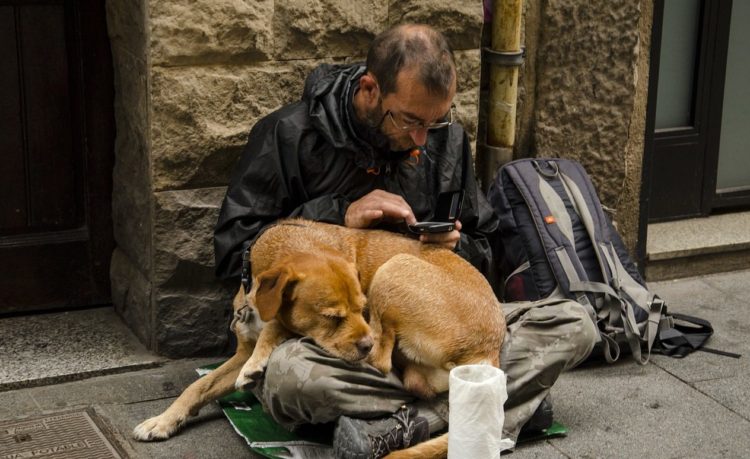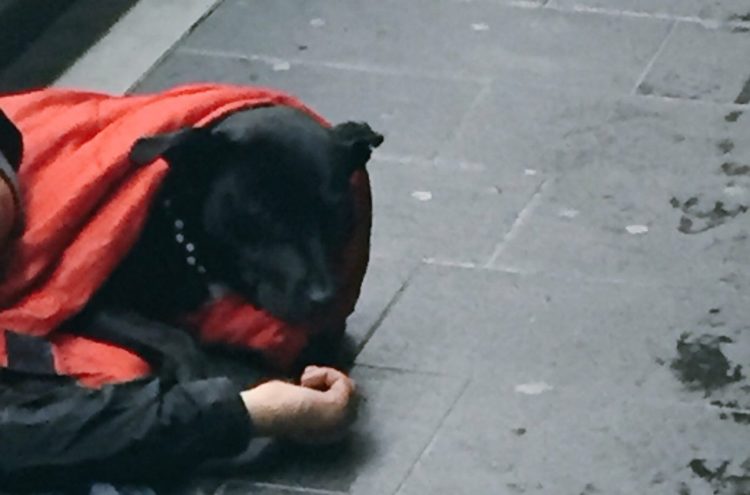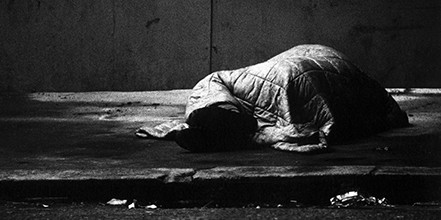Volunteer groups helping Liverpool’s homeless hit back at Mayor’s report
City’s ‘street teams’ reject what they saw as criticism of their work in the report – Routes out of Rough Sleeping – that was commissioned by Liverpool Mayor Joe Anderson. Tony McDonough reports

Voluntary groups who go out onto the streets of Liverpool to offer help to homeless people have described a major report on rough sleepers a “missed opportunity”.
And the ‘street teams’ also hit back at what they saw was criticism of their work in the report, commissioned by Liverpool Mayor Joe Anderson.
Published earlier this month, the report – Routes out of Rough Sleeping – was authored by John Finnegan, chief executive of the Liverpool Homeless Football League and Simon Whitter, who was himself once a rough sleeper.
Action points
It laid the primary blame for the rise in homelessness on failings in the benefits system and the health service and proposed 10 key action points to help tackle the underlying causes of rough sleeping.
But it also commented on the street teams that regularly go out in the city centre to offer food, hot drinks and advice to rough sleepers.
North Liverpool family launches appeal for homeless – click to read more.
The report stated: “The work of these teams can inadvertently support the continuation of the lifestyle which is ultimately damaging to the very people the street teams wish to help.”
They insist it wasn’t a criticism but merely an acknowledgement that all people and groups involved in helping rough sleepers needed to be better co-ordinated.
Positive reference
However, the street teams issued their own recommendations which they claim were not addressed in the report. They are:
- Liverpool City Council should work closely with the prison service and health CCG to ensure that people are provided with a bed upon release from prison or hospital.
- The No Second Night Out service is unsatisfactory and would benefit from an overhaul.
- Instead of criticising grass roots volunteer teams for ‘damaging’ rough sleepers through their outreach work, the council should refer to the work of the teams as positive reference for the current funded outreach services.
- Working with local community groups in a funded capacity could help rough sleepers unable to access official services because of ‘no recourse to public funds’ issue.
- Money spent on a PR campaign would be better spent on a cold weather shelter provision for the whole winter, which is currently only offered when temperatures fall below zero.
- Criminalising rough sleepers with the introduction of public space protection orders is not a permanent or satisfactory response to dealing with homelessness.
The teams – including Andy Donegan, Betty Lionheart and Mark Shankly on behalf of Anon Street team, Scouse Kitchen, Michelle Langan from The Papercup Project, Maria Checkland, who runs a street kitchen and the Friday evening outreach team – insist they were not consulted by the report’s authors.
Mr Donegan added: “The report felt like a missed opportunity to try some support based issues to deal with long term homelessness, rather than adding another layer of criminalisation, which is already failing.”
Feedback welcome
However, responding to the criticisms, Mr Whitter and Mr Finnegan, said in a statement: “We welcome all feedback to the Routes out of Rough Sleeping report and the suggestions by these groups have merit and will be looked into.
“We are encouraged by the fact that much of what they are recommending is also being proposed in the report – indeed the city council is already in the process of creating a new shelter for rough sleepers.

“As to the writing of the report, sadly we could not meet everyone involved in the homeless sector as our remit was specifically focused on rough sleeping with the aim to get a cross section of opinions to kick start a dialogue about the way forward.
“The report is just the first step on a long road to looking at how we support the most vulnerable people and it recognises many of the issues and challenges cannot be solved by any one organisation or individual.
“We welcome this feedback and look forward to engaging further with these parties to see how together we can best find these solutions.”

